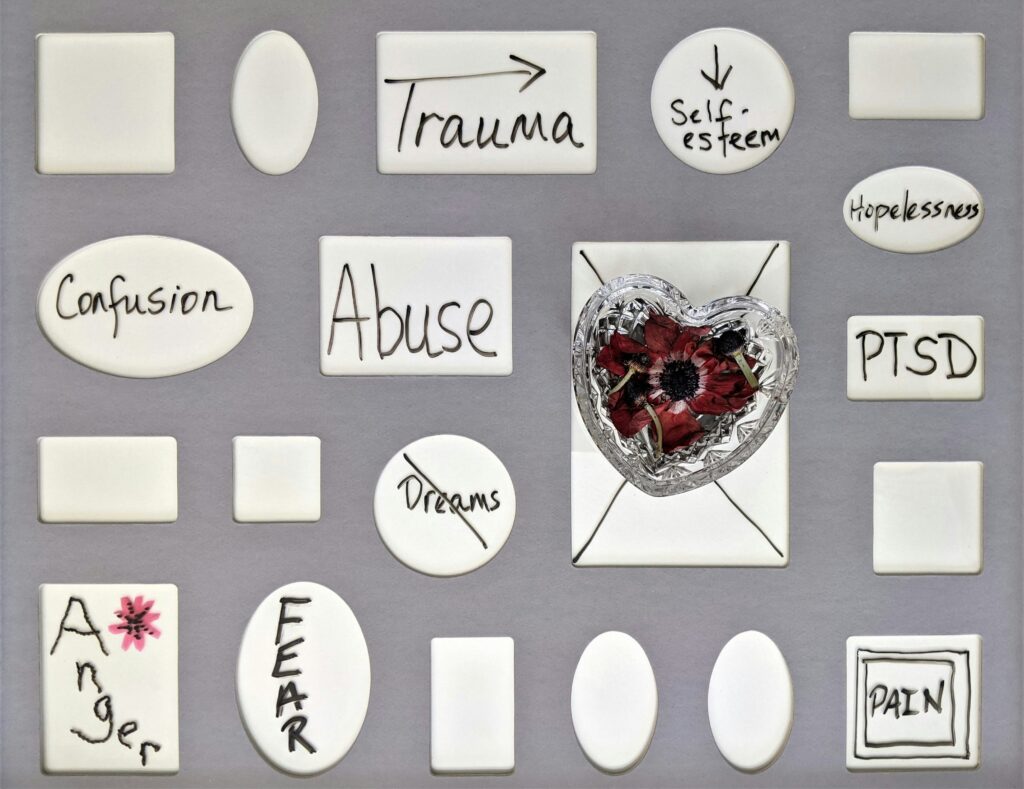A Mini Guide To Healing From Trauma and Past Pain

Sometimes, a person can become so attached to their wounds and trauma in a way that makes them feel safe but prevents them and others from growing into their highest potential. I’ve seen leaders wear their past pain like armor, in an attempt to protect themselves from outside criticism or unwanted feedback. The purpose of this blog post is to explore what this can look like for someone who’s been called to teach, lead, or guide others into a healed place, why this happens, and what can be done about it.
Please note: This blog post does not substitute for professional help. If you are having difficulty coping, please don’t hesitate to get help from a trained counselor or professional.
Your Relationship to the Past
Living in the past is not the default setting for anyone who has been called to leadership. Typically, we all would like to focus on the future. To live out our goals and ideals. To see dreams come to fruition. Personally speaking, I feel most at home inside my inner landscape, observing ideas and patterns that exist within people and society. At times, I even feel nostalgic when reflecting on positive memories. For instance, the warm, sentimental feeling of flipping through a scrapbook or watching an old home video. But there are moments when I don’t experience nostalgia in the same way many others do.
Although some of us don’t see the past in the same way as some others do, we can still be extremely likely to hold onto past pain. It’s often when we’re able to dive into this pain as a method of self-exploration and be honest with our scars that we can truly heal, grow, and guide others toward their road of restoration. To heal from past pain, we must first be willing to face our fear of accepting the past.
The past is full of painful memories and mistakes and we may be quick to disassociate from unpleasant past experiences. We may also hold grudges against people who wronged us. Ironic isn’t it? Once you’re able to work on your intuition and discernment, you’ll become better equipped to deal with and heal from the past. God doesn’t require perfection to use us, but He will hold us accountable for how we lead His sheep. We must be careful not to abuse or harm others due to unresolved pain or trauma within ourselves.

Pain vs Trauma
There is a difference between past pain and trauma. Pain can be anything that hurts your feelings or ego. It can be a friend lying to you or someone calling you an offensive name. Trauma is caused by a significant event that results in a long-term impact on how you function mentally and/or physically. War, a car crash, a natural disaster, and sexual or religious abuse are all commonly considered traumatic experiences. Because of how many of us deal with past pain, we’re likely to have similar reactions to trauma which include:
- Avoiding people, places, or things that remind you of the trauma;
- Experiencing fear and anxiety about the outside world;
- Blaming yourself for the trauma (guilt);
- Having difficulty trusting others;
- Becoming overly critical of others;
- Using self-deprecating statements as a coping mechanism;
- Stress manifesting as chronic physical pain
Healing from trauma and dealing with past pain requires you to open up to true vulnerability. This means acknowledging the past- good and bad moments- and remaining open to healing and growing from these events.
Finding Ways to Heal From Past Pain
I’ve determined that one of the first steps for those who want to heal from past pain is to develop their intuition and discernment. But what does that look like? Here are a few tips on how I developed this and healed from unhealthy attachment to past experiences.
1. Practice mindfulness: A few years ago, I found myself struggling to renew my mind, all of which required understanding and accepting deep inner truths, convictions, revelations, and desires. Through prayer, Bible study, and meditation on God’s Word, I realized that by remaining present, I would allow myself to integrate past experiences and transcend them. From then on, I would spend at least 30 minutes meditating on scripture per day. I reluctantly adopted this habit, but with time, began experiencing a deeper sense of understanding and inner peace, both with myself (past and present) as well as with other people. Mindful techniques, such as meditating on God’s Word can help us connect deeply with ourselves and realize that past hurts cannot control us. We discover a sense of freedom knowing that we can choose how we respond to the things that impact us.
2. Be kind to yourself: You may hold onto or avoid pain because you feel guilty for your part in it. You may be unwilling to accept or acknowledge your own flaws and refuse to listen to feedback from others. It’s important to know that you can have compassion towards yourself while also acknowledging another’s struggle. Make a conscious effort to view and treat others in the same way you view and treat your loved ones when they experience pain- with compassion and understanding.
3. Talk about what you’re going through– While this may be scary, this is an essential key to healing. You may feel like you’ll be misunderstood or that the other person won’t want to hear about it. But this is often not the case. A few years ago, I needed to have a difficult conversation with a loved one about something that was important to me. I worried this person wouldn’t understand where I was coming from and would judge me harshly for it. I even made up unfair and untrue assumptions about this person, all rooted in my own fears. I stressed for weeks about how to address the topic. And I avoided any conversations with this person for as long as possible. When I finally had the conversation, I quickly realized how unwarranted the fear and stress were. I felt relieved and comforted that my anxieties were unnecessary. And I realized that the assumptions I made about the person were rooted in my insecurities and not in their character. Opening up about past pain with a trusted and accepting friend or family member can help you heal.
When dealing with trauma, it’s also helpful to find a coach, mentor, or therapist whom you trust and can open up to. They can help provide additional tips to help you heal from past hurts and guide you through the healing process.
In conclusion, while your relationship with the past can be complex, remember that the fear of vulnerability and acknowledging past hurts can prevent you from personal growth and healing. Understanding how your past influenced who you are today is a scary but rewarding experience. Healing from past pain isn’t an overnight experience. It requires your conscious desire, effort, and persistence. But once you’re open to the process, the result is more peace, freedom, and self-acceptance. For additional help and guidance on how to shift from a wounded place to a healed place, schedule a 1-on-1 consultation with me here.
**Erica weaves themes of transformative hope and grace-filled leadership into everything she shares on her blog. She’s an author, a speaker, and a life coach, who offers honest encouragement and road-tested wisdom about topics ranging from leadership and lifestyle, to discovering your God-crafted identity, design, and purpose.
This post is sponsored by: https://hype.co/@ericakenechi